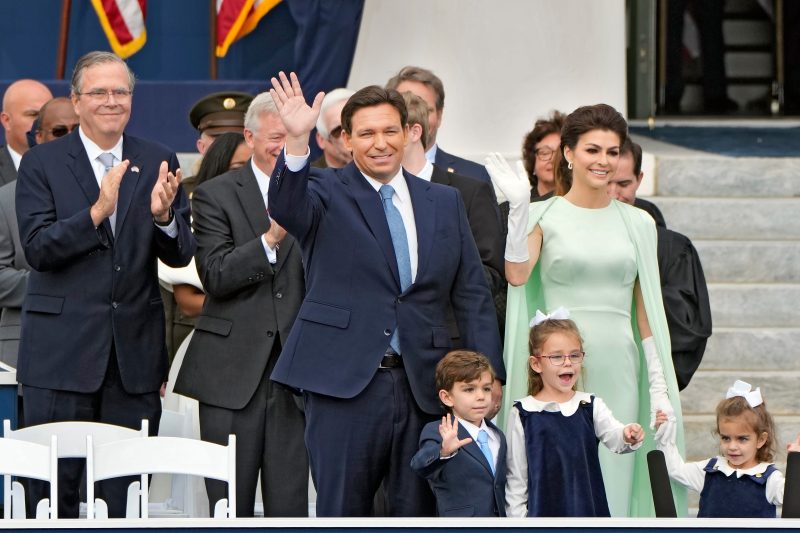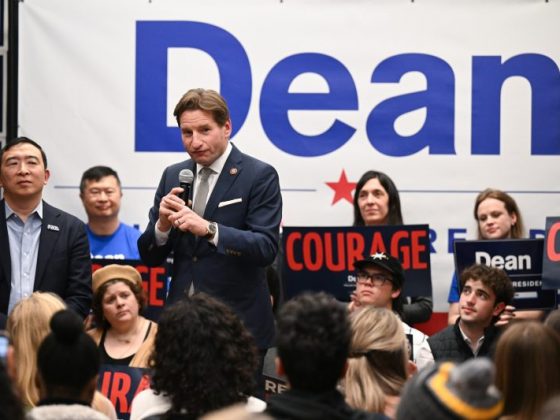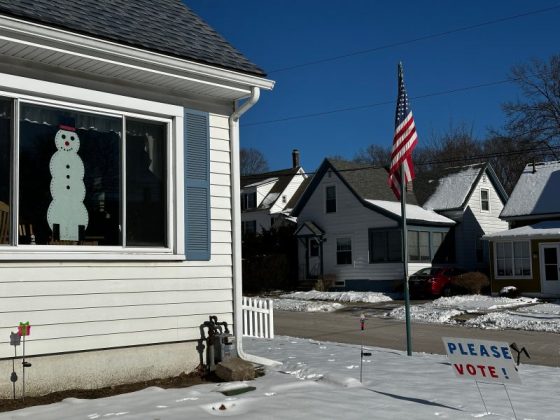Once upon a time there was a Florida governor who wanted to be president.
Soon after the midterm elections, he began to gear up. He didn’t announce immediately but he did the things inevitable candidates do — securing endorsements and welcoming the support of a super PAC that was already raising money. That super PAC would soon announce having raised a massive haul and, by the beginning of the following year, polls showed the candidate among the leaders in national polling.
And then the bottom fell out. Donald Trump was too formidable and, by the time of the New Hampshire primary, the writing was on the wall. Within days of voting in the Granite State, the governor brought his campaign to an end and headed back down south.
So it was for Florida Gov. Ron DeSantis in 2024 — and for former Florida governor Jeb Bush eight years before.
The parallels are striking, just as the differences are revealing.
Bush got out to a strong start, announcing that he was exploring a presidential bid in December 2014. His team and his allies raised a nine-figure sum they hoped would intimidate potential competitors against running. It didn’t work; the field of candidates ended up being unusually bloated. That’s in part because Bush’s deep pockets didn’t produce a big early lead. He sat at the top of the pack in early 2015 but with less than 20 percent of the vote.
DeSantis was similarly expected to throw his hat in the ring after the 2022 midterms and, having been reelected handily, shifted to pre-announcement mode. The super PAC backing his effort, Never Back Down, also raised a lot of money. By the end of 2022, polling showed him trailing Trump by a relatively small margin.
Bush formally announced his candidacy in mid-June 2015. Trump announced his candidacy a day later. Within two months of Trump announcing his bid, he had a wide lead over the rest of the field.
Trump announced his 2024 bid in November 2022. Within two months, his lead over DeSantis was consistently in the double digits and — as with Bush — his competitor’s position only declined in the months that followed. By Iowa, Bush only secured about 3 percent of the state’s support. DeSantis fared far better, but that was in large part because the field of viable candidates was so much smaller.
After Iowa, it was obvious that neither candidate would be the Republican nominee. DeSantis dropped out just before New Hampshire and Bush a bit afterward.
Even the fundraising totals have an odd synchronicity. Fundraising totals for DeSantis won’t be finalized until his committee and the super PAC report their more recent totals. Still, the most recent numbers submitted to the Federal Election Commission show nearly equivalent receipts for both campaigns (without adjusting for inflation). A much larger percentage of DeSantis’s contributions came from donations of $1 million or more.
Despite all of that money, both candidates also suffered from negative public perceptions that they couldn’t shake. Trump’s eventual description of Bush as “low-energy” landed in part because Bush was already seen that way. One of his most memorable moments was when, attempting a joke, he asked the crowd at an event to clap for his comments. It reinforced the Eeyore-ish reputation he’d attained.
DeSantis was burdened with a different perception: that he struggled to convey the casual personableness that is expected of candidates. His emotional responses often seemed to be almost practiced; examples in which he seemed particularly off-putting spread widely on social media, shared with equal relish by Democrats and Trump supporters.
The political strength of Trump, of course, is the central similarity that defined both governors’ bids — but the nature of the similarity differed. Bush came at the front end of Trump’s political career, and expressed the common-at-the-time view that Trump’s antics and politics were a sideshow. Trump’s hard-right views on immigration in particular resonated with the base in a way that Bush’s budgets-and-business policies didn’t, and that was that.
DeSantis had to face Trump after Trump reshaped the entire party around his priorities. So DeSantis tried to run to Trump’s right, governing in Florida like a more-MAGA version of MAGA’s inventor. But now the problem wasn’t competing with Trump on policy to build a base, but to try to peel Trump’s now-solid base away. Being Trump-but-slightly-different didn’t really work, especially as Trump reengaged with day-to-day politics and reminded his base why they loved him.
Over the long run, these distinctions will probably prove to be subtle. The overall narrative of the Florida governors who tried to parlay their state-level support into the presidency until being sent packing by Trump? That may be what sticks.
Not that this comparison between the two governors is new. In January 2023, that Bush attended DeSantis’s second inauguration as governor was used as a political attack by Trump — the man who ended up beating both of them.


